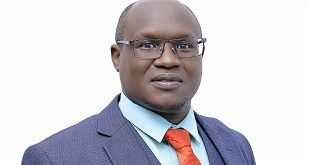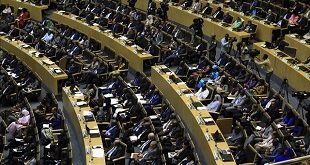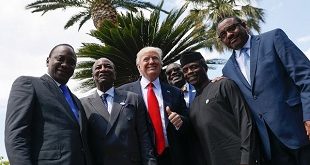
By Rosebell Kagumire
Justice Joseph Mulenga has been a judge at the Supreme Court of Uganda for the last 12 years. Last week he retired from the bench. The Independents Rosebell Kagumire spoke to him on his last day in office about a range of issues. Excerpts:-
My Lord, you have been a judge of the Supreme Court for 12 years. What challenges did you find?
With effect from today I am retiring and I can say I have enjoyed my work for the last 12 years. I leave with mostly good memories.
You’ve been on the Coram twice in last two presidential election petitions; the public has criticised the bench for what seems to be contradictory rulings. Looking back, is there anything court could have done differently?
There is no contradiction. The problem lies in the law and Parliament should tackle it seriously. The debate has been on what the law is and what the law should be. There are two formulations of the law regarding annulment of elections on irregularities. The formulation in our law is that irregularities constitute a ground for annulling an election if they affected the result of the election in a substantial manner. Therefore, the court is put to the task of satisfying itself whether it has got evidence which proves irregularities affected the results in a substantial manner. The other formulation, which I believe is used in UK and Tanzania, is that irregularities are sufficient ground for annulling an election if the irregularities were substantial. In this formulation the focus is on the irregularities and not on their effect on the results.
The source of the apparent disparity in this court is an assumption that if the irregularities are substantial, then the results were affected substantially. The minority judgments in the Presidential Election Petitions (two judges in 2001 and three in 2006) were inclined to that conclusion while the majority held that the substantial effect of the irregularities on the results had to be shown.
Then how do you explain the fact that the same law has been used to overturn several elections like the Sembabule one?
The apparent disparity is seen more in presidential than in parliamentary election petitions. Generally in parliamentary election results, the margin by which the petitioner lost is usually relatively small so it is easy for court to see that if the irregularities had not occurred, the outcome of the election could have been different; in other words that the results were affected in a substantial manner. On the other hand, in presidential elections the margin between the votes polled by winner and those polled by the petitioner can run into millions. For instance, if 10% of the electorate was irregularly disenfranchised and yet the winning candidate secured 70% of the votes cast, the irregular disenfranchisement would not have affected the results substantially because even if the disenfranchised electorate had voted for the loser he would still have lost. Yet disenfranchising 10% of the electorate is a substantial irregularity. Personally I think the better formulation is the one that makes substantial irregularities the criterion, so that the courts hands arent tied.

You are leaving when theres a lot of concern that the judiciary is under siege from the executive. Whats your view?
Fortunately, I can say that the Ugandan judiciary has firmly upheld its independence even in the worst times and I leave confident that it will continue to do so. Thats not to say, however, that it has not had to face challenges. There have been occasions of infringement of judicial independence, but generally it is upheld.
Occasionally, you find when political leaders are disappointed with judicial decisions they react by attacking the judiciary contrary to the Constitution and the principle of judicial independence
Two main incidents will forever be on my mind. First, was when the Constitutional Court decided to annul the [2000] referendum. The president was furious and he made inflammatory speeches denouncing the decision. That was followed by some members of the public being mobilised to demonstrate against the judiciary. Fortunately, the Attorney General saved the situation and prevented it from escalating by deciding to appeal to the Supreme Court. However, some damage was done. When the Supreme Court reversed the decision, some people said the speeches and government reaction had influenced us to rule in favour of government. This was not true at all because the Supreme Court took the decision independently and found that the Constitutional Court had been mistaken in its judgment.
The second is the “Black Mamba†incident. The government unleashed armed security operatives on the High Court to prevent an order of that court to release suspects on bail being carried out. In the recent decision of the Supreme Court in the case of Uganda Law Society vs Attorney General, we ruled that the idea of government going around the judiciary and taking civilian suspects to be tried by military courts because it expects military courts to do for it what the civilian courts have not done is unconstitutional. I hope such scenes won’t be repeated.
There is perception that judges, especially in major cases, share their decisions with the executive before ruling in court?
I would be shocked if that happened. I am not aware of any such incident where the judiciary has shared its decisions with the executive. That reminds me of a shock we had at the Supreme Court when after the courts decision in the 2001 Presidential Election Petition, Ms Beti Kamya (of FDC) circulated an email among judges and presumably others, alleging the President had talked to the Chief Justice (CJ) warning him that if anything went wrong it would be on the CJs shoulders and that as a result of that conversation the CJ made some of us to change our judgments. Nothing could be more false than this. Definitely no such conversation took place and most certainly the CJ didnt interfere with anyones judgment.
You have joined the African Court on Human and People’s Rights. What difference will the court make regarding human rights violations on the continent?
There is one handicap in the court setup. Accessibility to the court is limited to only the African Commission on Human and Peoples Rights and member States. Only those two can bring cases before the court.
 The Independent Uganda: You get the Truth we Pay the Price
The Independent Uganda: You get the Truth we Pay the Price


